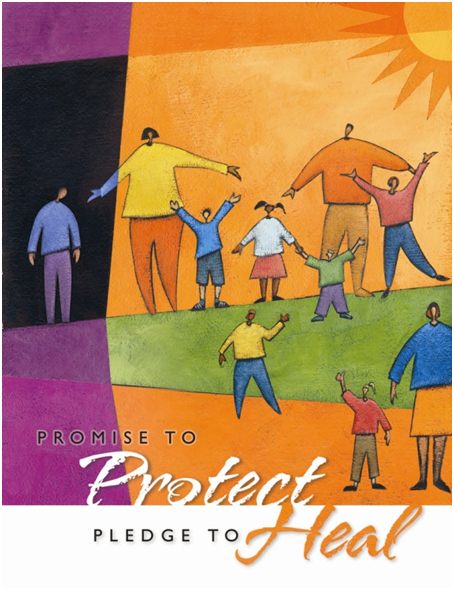By Jim Davis - Florida Catholic
MIAMI SHORES | "I was afraid to tell my parents," a boy said.
"I tried to get out of the van, but he didn't let me," a girl said. "He did things to me that he wasn't supposed to do."
Those and other true stories by abuse victims are the reason Jan Rayburn shares the job of leading Virtus training with 73 other facilitators.

"It's emotionally draining," said Rayburn, Safe Environment coordinator for the archdiocese. "I've seen the videos a hundred times, and they still affect me."
The on-screen victims are portrayed by actors, though with the actual victims coaching them on the set.
"We could have used (the victims), but it would have re-victimized them," Rayburn said. "But everyone else was real, including the predators."
And the predators often camouflage themselves, according to the video and accompanying workbook. Contrary to popular beliefs, predators are not usually strangers who can be profiled. In nearly nine out of 10 cases, they are people the victim knew and trusted, Rayburn said: most often a family member, such as an uncle, parent or stepparent; or a friend of the family, coach, teacher, camp counselor, or even another child.
The Virtus videos have changed over the years as presenters like Rayburn gain experience. The program once showed a predator as a "creepy guy in a playground," she said. "Now we show him as someone who could be a friend or neighbor."
One abuser says he got access to kids as a softball coach, roller rink owner, even dressing as Santa. The methods allowed him to abuse some 500 youths, he estimates.
Another misconception is that children usually lie about sexual abuse. In the one percent of cases where children are found to have lied, it's usually older children, Rayburn said.
"Young children can't lie about it because they don’t understand it," Rayburn said. "So when they say they were abused, 99 percent of the time they're telling the truth."
The second video offered five steps to deny abusers access to children and to identify their methods.
One step was to understand how predators work: winning over parents as a friend of the family, even softening up whole communities with charm, then "grooming" children with sex talk and pornography. The grooming is often aided by online chat and images.
A second step is prevention: screening everyone � staff and volunteers � who may have access to children: written applications, criminal background checks, face-to-face interviews, checking references, even fingerprinting. The archdiocese fingerprints all its 9,000 employees and clergy every five years, and between 10,000 and 12,000 volunteers each year, according to Mary Ross Agosta, archdiocesan director of Safe Environment.
Third step: monitoring all ministries and programs � locking unused rooms, controlling who has keys, installing Internet filters, ensuring that adults are not alone one on one with children, developing sign-in and release policies for adults to drop off and pick up children.
Fourth: being aware of a youth's behavior, whether he/she becomes too quiet or too aggressive, bathes excessively or neglects personal hygiene. Tools here include "patient, non-judgmental listening," and teaching exact, scientific terms for body parts.
Finally, reporting any concerns you may have. If you believe a child is or has been abused, first call law enforcement or the Florida Abuse Hotline (1-800-962-2873), then the archdiocesan abuse hotline (1-866-802-2873). And in cases of immediate danger, dial 911.
"Pay attention to your own feelings if something doesn't seem right," Rayburn said.
She conceded that speaking out is the hardest step. But she added that it's not only the right thing to do � it's the law.
"In Florida every adult is a mandatory reporter," she said. "You must report it to the authorities."

